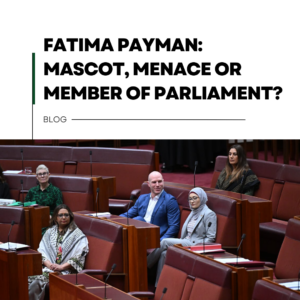Freedom of religion is a right entrenched within Islamic teachings.
Islamic teachings are unique in that they emphasise that every individual has a right to freedom of conscience and that no act must involve coercion or force.
And say, ‘It is the truth from your Lord; wherefore, let him who will, believe, and him who will, disbelieve.’ (18:30)
We believe that the right to differ lies at the root of all knowledge and investigation. We must strive to safeguard the right to differ, to question, and to dissent. We must at the same time ensure that our differences in every sphere – whether religious, scientific, social, or otherwise, should be beneficial and not destructive. Together, both individually and collectively, we must strive to deepen our consciousness of the duties we owe to each other at all levels.
In Islam freedom of religion is a fundamental concept. We believe that freedom of religion not only allows for the freedom to practice one’s faith in accordance with its tenets but also the freedom from being coerced into converting to a particular religion. This concept of freedom of religion was established almost 1500 years ago by the Holy Quran and was upheld by the Holy Prophet (peace be upon him) and the early Muslims.
The support for freedom of religion and non-coercion in the Holy Qur’an is as follows:
“There should be no compulsion in religion.” (2:257)
The Holy Qur’an maintains and upholds the right to freedom of religion, including the right to change one’s religion.
Let us present an incident about the freedom of faith with reference to people of other faiths.
Once a delegation of Christians from Najaran came to the Holy Prophet (peace be upon him). During this meeting with him in the Prophet’s Mosque in Madinah, the time for the Christians to say their prayers arose and they began to go outside. The Holy Prophet (peace be upon him) invited them to offer their prayers in the Mosque. Then the pact drawn with these Christians of Najaran granted them full freedom of faith and it was made incumbent upon the Muslims to protect their churches. No church should be destroyed nor should any priest be evicted or expelled. Nor should any right of theirs be diminished. Nor should any Christian be required to change his faith. The proclamation was that the Holy Prophet (peace be upon him) hereby warrants his personal assurance. The pact went so far as to say that if the Muslims wish to help fund the repair. of the Christian churches, it would be an act of benevolence on their part.
So, this is the beautiful teaching of Islam and the excellent example of the Holy Prophet of Islam (peace be upon him), a very small example of which we have laid before you.
It is a great travesty to allege that there is no concept of freedom of faith and conscience in Islam.




